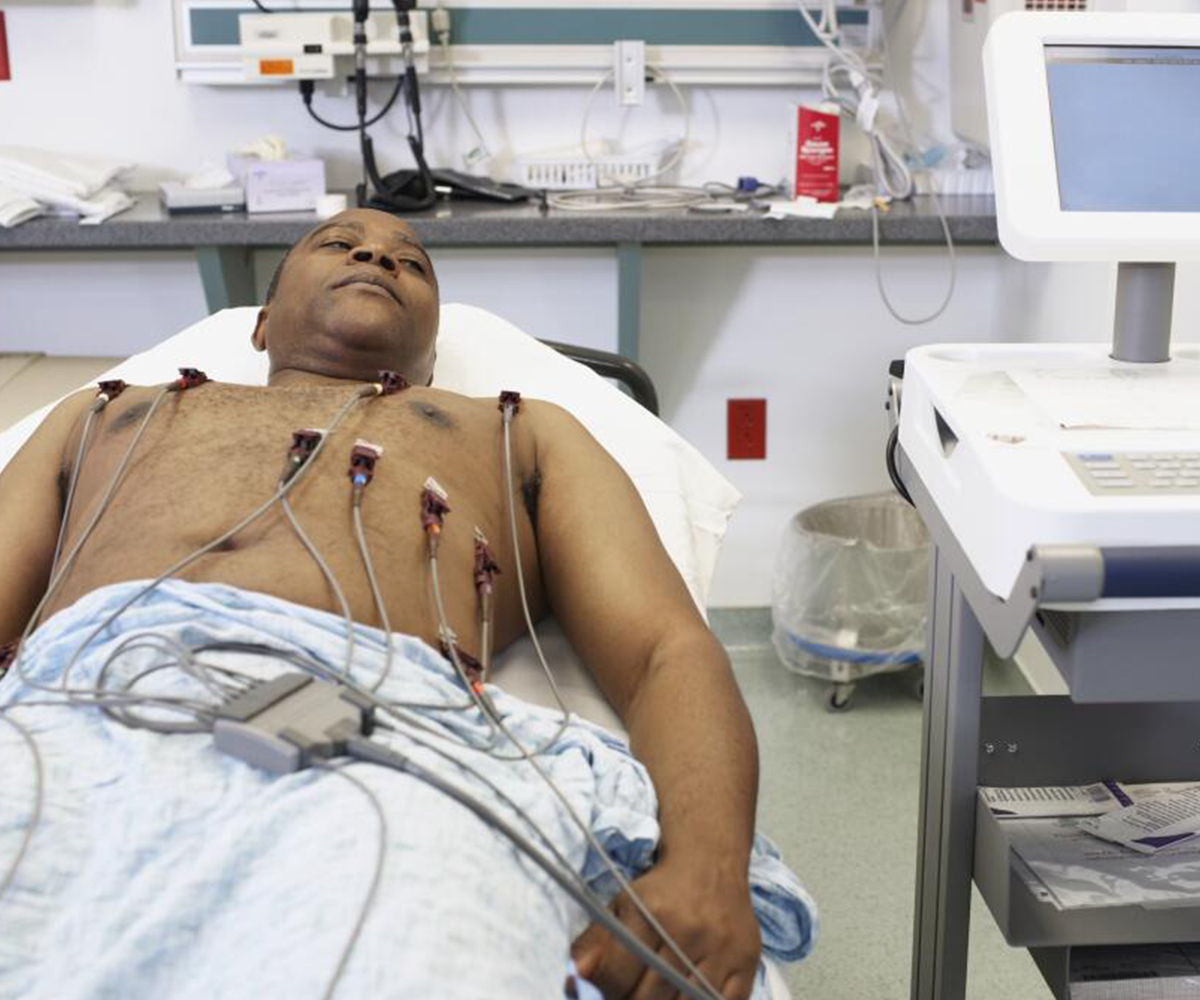Electrocardiogram
An electrocardiogram (ECG or EKG) is a quick and painless procedure that checks the electrical activity in your heart. Dr Mgidlana will perform an ECG during a comprehensive cardiology consultation to assess your heart health and determine any underlying factors.
What is the purpose of an ECG?
ECGs are often performed during comprehensive cardiology consultations as it’s a standard procedure for detecting common heart conditions and helping to understand specific symptoms you may be experiencing.
Dr Mgidlana uses ECGs to diagnose heart conditions such as:
- Arrhythmias
- The effectiveness of heart disease treatments
- Blocked or narrowed arteries
- Previous heart attacks
You may also require an ECG if you are experiencing specific symptoms, such as:
- Chest pain
- Dizziness
- Shortness of breath
- Quickened pulse
- Fatigue
What to expect during an ECG
You will be required to change into a hospital gown before lying on your back on the patient bed. If you have hair on your chest or arms, Dr Mgidlana will shave the areas, so the electrode patches don’t stick.
Dr Mgidlana will place 12 electrodes onto your chest and limbs to record the electrical signals in your heart, which are responsible for your heartbeat. The electrodes are connected to a monitor that records the signals and displays them in waves on paper.
Results of an ECG
After the procedure, Dr Mgidlana will take you through your results and discuss possible diagnoses. He may then request further testing or provide a comprehensive treatment plan. Your treatment plan may include medications or mobile heart monitoring devices that can detect any abnormalities.

